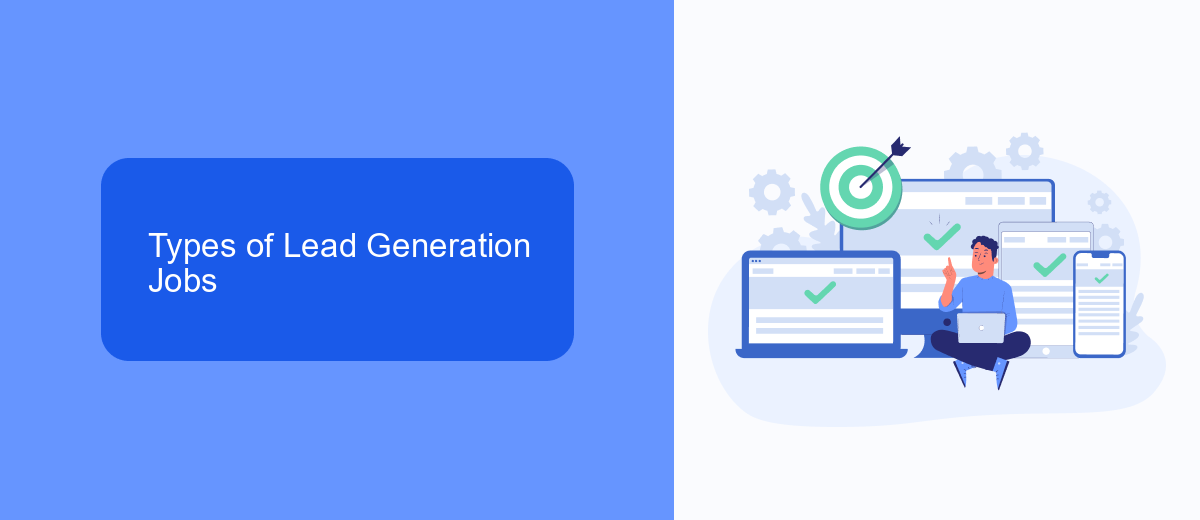Lead generation jobs play a crucial role in the business ecosystem by identifying and cultivating potential customers for products or services. These roles involve researching, engaging, and nurturing leads through various channels to convert them into loyal clients. As companies increasingly rely on data-driven strategies, professionals in lead generation are in high demand, making it a dynamic and rewarding career path for those with strong communication and analytical skills.
Understanding Lead Generation
Lead generation is a crucial component of any successful marketing strategy. It involves identifying and attracting potential customers to a business's products or services. This process helps businesses build a pipeline of potential clients, which can be nurtured and converted into loyal customers over time. Effective lead generation requires a deep understanding of the target audience and the channels through which they can be reached.
- Identifying potential leads through market research and data analysis.
- Creating engaging content that attracts and retains the interest of prospects.
- Utilizing digital marketing tools like SEO, social media, and email campaigns.
- Nurturing leads through personalized communication and follow-ups.
- Analyzing and optimizing lead generation strategies for better results.
By implementing a well-structured lead generation strategy, businesses can ensure a steady flow of potential customers, thus increasing their chances of conversion and growth. It is essential to continuously evaluate and refine these strategies to adapt to changing market trends and consumer behaviors, ensuring sustained success in the competitive business landscape.
Types of Lead Generation Jobs

Lead generation jobs encompass a variety of roles, each focusing on different aspects of attracting and converting potential customers. One common type is the Lead Generation Specialist, who is responsible for identifying potential leads through various channels such as social media, email campaigns, and networking. They use data analysis to target the right audience and craft compelling messages to engage them. Another role is the Lead Qualification Specialist, who evaluates the quality of leads and ensures they meet the criteria set by the sales team, allowing for more efficient and effective sales processes.
In today's digital landscape, technology-driven roles have become increasingly important. For instance, Integration Specialists work on setting up and managing tools that automate lead generation processes. Services like SaveMyLeads simplify this by allowing seamless integration between different platforms, ensuring that leads are captured and organized efficiently. Additionally, CRM Managers play a crucial role in maintaining and optimizing customer relationship management systems, ensuring that all lead data is accurately recorded and accessible for sales teams. These roles collectively ensure that businesses can effectively manage and convert leads into loyal customers.
Key Skills and Responsibilities

Lead generation jobs are pivotal in driving a company's growth by identifying and nurturing potential customers. Professionals in this field must possess a unique blend of skills to effectively generate and manage leads. A deep understanding of marketing strategies and customer behavior is crucial for success in this role.
- Strong communication skills: Ability to engage potential leads and articulate the value proposition effectively.
- Analytical skills: Proficiency in analyzing data to identify trends and optimize lead generation strategies.
- Technical proficiency: Familiarity with CRM software and lead generation tools to track and manage leads efficiently.
- Time management: Ability to prioritize tasks and manage multiple leads simultaneously.
- Problem-solving skills: Aptitude for addressing challenges and finding innovative solutions to improve lead conversion rates.
In addition to these skills, lead generation professionals are responsible for researching and targeting potential markets, creating compelling content to attract leads, and collaborating with sales teams to ensure seamless transition from lead to customer. Continuous learning and adaptation to new technologies and market trends are also essential to excel in this dynamic field.
Career Paths and Opportunities

Lead generation is a crucial component of many industries, offering diverse career paths and opportunities. Professionals in this field are responsible for identifying and nurturing potential customers, making it a vital part of sales and marketing strategies. As businesses continue to prioritize customer acquisition, the demand for skilled lead generation specialists is on the rise.
Individuals interested in pursuing a career in lead generation can explore a variety of roles, each offering unique challenges and rewards. From entry-level positions to advanced roles, there are numerous opportunities for growth and advancement. Professionals can work in various sectors, including technology, finance, healthcare, and more.
- Lead Generation Specialist
- Sales Development Representative
- Marketing Coordinator
- Business Development Manager
- Customer Relationship Manager
Each of these roles requires a blend of analytical skills, creativity, and communication abilities. As professionals gain experience and hone their skills, they can move into higher-level positions, such as strategic planning or team leadership roles. The dynamic nature of lead generation ensures that there are always new challenges and opportunities for those willing to innovate and adapt.


Salary and Job Outlook
The salary for lead generation jobs can vary significantly depending on factors such as location, experience, and industry. On average, entry-level positions might start at around ,000 to ,000 per year, while more experienced professionals can earn upwards of ,000 to ,000 annually. Those in managerial roles or specialized industries may see even higher earnings. The demand for lead generation specialists is expected to grow as businesses continue to seek effective ways to attract and convert potential customers, making this a promising field for career growth.
Job outlook for lead generation professionals is positive, with increasing opportunities as companies invest more in digital marketing strategies. The rise of automation tools and integration services like SaveMyLeads can enhance productivity, allowing professionals to focus on strategic planning and customer engagement. SaveMyLeads, for example, streamlines the process of capturing and managing leads by automatically integrating various platforms, thus improving efficiency and effectiveness in lead generation tasks. This technological advancement supports a dynamic work environment, offering lead generation specialists a chance to leverage cutting-edge tools to optimize their performance and career prospects.
FAQ
What is lead generation in the context of jobs?
What skills are essential for a lead generation job?
How can automation help in lead generation jobs?
What are the common challenges faced in lead generation jobs?
How do you measure the success of lead generation efforts?
You probably know that the speed of leads processing directly affects the conversion and customer loyalty. Do you want to receive real-time information about new orders from Facebook and Instagram in order to respond to them as quickly as possible? Use the SaveMyLeads online connector. Link your Facebook advertising account to the messenger so that employees receive notifications about new leads. Create an integration with the SMS service so that a welcome message is sent to each new customer. Adding leads to a CRM system, contacts to mailing lists, tasks to project management programs – all this and much more can be automated using SaveMyLeads. Set up integrations, get rid of routine operations and focus on the really important tasks.
